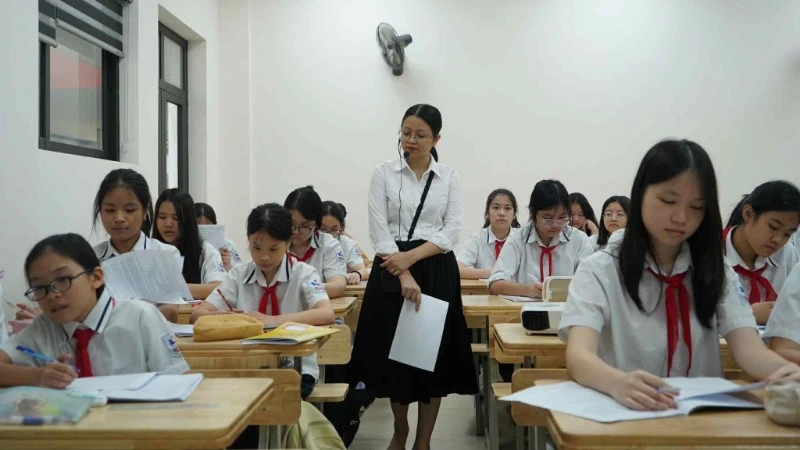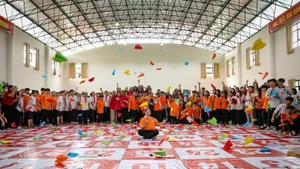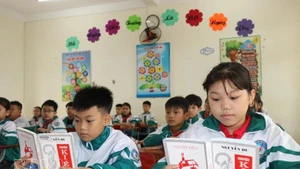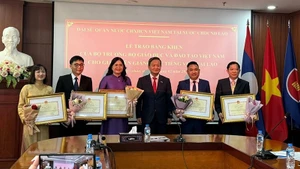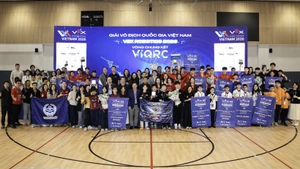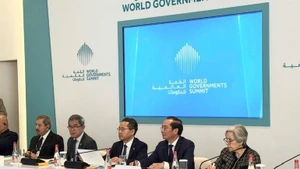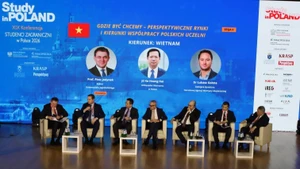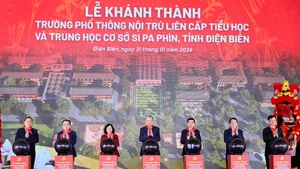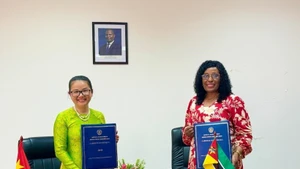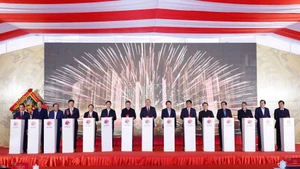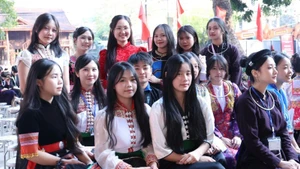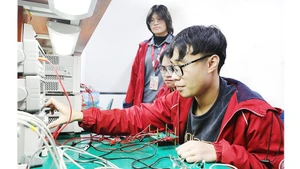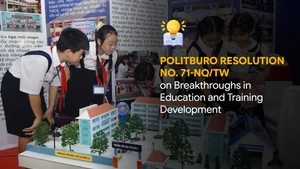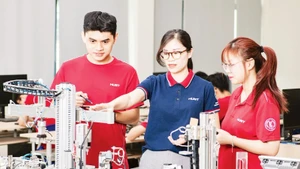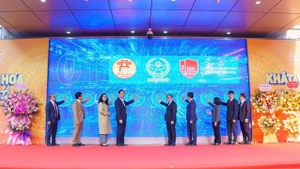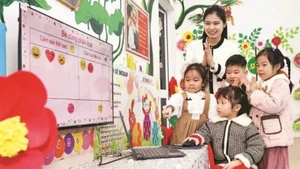This approach not only forms the moral character, ideals, and aspirations of the younger generation but also serves as a practical path to building a modern and humane Vietnamese identity in an era of integration.
Nurturing culture, arts, and life values
According to Thai Van Tai, Director General of the Department of General Education under the Ministry of Education and Training, it is insufficient for schools to limit student interaction solely to textbooks and teachers. Beyond effective utilisation of state-provided resources, schools must also know how to design and mobilise the participation of various stakeholders in the educational process. This principle has been concretised in numerous guidelines issued by the Ministry of Education and Training.
At present, the education sector enjoys many favourable conditions to pursue the goal of holistic student development. Infrastructure has been increasingly strengthened and ensured, while the implementation of full-day schooling (two sessions per day) has created open spaces for educational activities aligned with the orientation of the 2018 General Education Curriculum and comparable to trends in developed countries.
Students today are not confined to textbook learning alone. They are exposed to a range of curriculum-oriented activities that require the involvement of many social forces, including those in the fields of culture and the arts. In this direction, the Ministry of Education and Training has issued a number of legal documents and detailed guidelines to support schools in their implementation.
Students today are not confined to textbook learning alone. They are exposed to a range of curriculum-oriented activities that require the involvement of many social forces, including those in the fields of culture and the arts.
Thai Van Tai, Director General of the Department of General Education under the Ministry of Education and Training
According to Trinh Hoai Thu, Deputy Director General of the Department of General Education (under the Ministry of Education and Training), the 2019 Law on Education stipulates that educational content must ensure fundamental, comprehensive, practical, and modern qualities; emphasise ideology, moral character, and civic awareness; inherit national cultural traditions and identity; and absorb the essence of human civilisation. The aim of general education is to foster intellectual, physical, and civic qualities; nurture talents; guide vocational orientation; and place emphasis on ideals, ethics, lifestyle, practical skills, and the application of knowledge.
Elements of life values and cultural arts are integrated into various subjects such as Music, Fine Arts, Literature, History, Civics, Experiential and Career Guidance Activities, and Local Educational Activities. The curriculum clearly defines its goal of nurturing a love for beauty, a humanistic spirit, civic responsibility, and a desire to contribute to society, centring on the core qualities of patriotism, compassion, diligence, honesty, and responsibility.
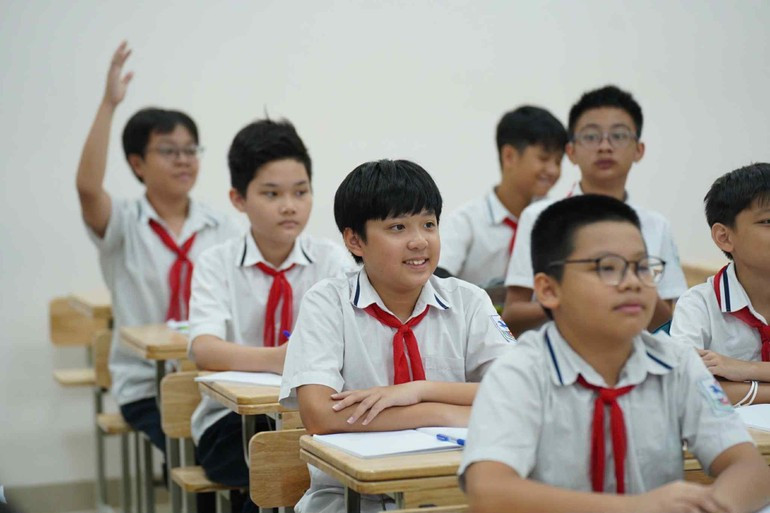
Each year, the Ministry of Education and Training issues directives outlining academic-year tasks, identifying moral, lifestyle, and life-ideal education, along with life skills training, as central priorities. For the 2025–2026 school year, Official Dispatch No. 4567/BGDDT-GDPT of the ministry emphasises the improvement of the quality of comprehensive education across morality, intellect, physique, and aesthetics. This includes life-value education, life-skills training, reading culture, school culture, arts, financial literacy, digital competence, and artificial intelligence literacy.
Helping young generation preserve national identity
Based on discussions at the seminar, the Ministry of Education and Training and the Viet Nam Writers’ Association agreed to consider compiling, reviewing, and integrating the association’s digital learning materials into general education. These materials may be incorporated into the 2018 General Education Curriculum or used during supplementary afternoon sessions. The implementation will follow Circular No. 21/2014/TT-BGDDT dated July 7, 2014, as issued by the Minister of Education and Training, which regulates the management and use of reference publications in educational institutions.
According to Trinh Hoai Thu, Deputy Director General of the Department of General Education, education in life skills, values, and cultural arts has become an essential pillar in the strategy for comprehensive educational development. It not only lays the foundation for shaping personality, nurturing aspirations, and fostering ideals among students, but also serves as a driving force for developing modern, humane, and globally integrated Vietnamese citizens.
Sharing the same view, Nguyen Quang Thieu, Chairman of the Viet Nam Writers’ Association, stressed that in an increasingly unpredictable world, the younger generation must possess the inner strength to embrace the cultural essence of humanity while preserving Viet Nam’s distinct national identity and resisting assimilation and negative ideological influences.
He stressed that compiling and implementing educational books on culture, arts, and moral living following President Ho Chi Minh’s example, as well as materials on the Communist Party of Viet Nam, are vital and urgent tasks. Teaching history, he noted, must be done with accuracy and integrity; only when historical truths are fully and correctly conveyed can children find inspiration from which grow love, pride, and a sense of responsibility toward their homeland.
“Human beings can survive on many factors, but it is culture and art that give meaning to that existence. Culture not only makes us truly human but also opens ‘bright eyes’ in both thought and spirit, allowing us to cherish the past and look toward the future,” shared Nguyen Quang Thieu.
In this spirit, the Viet Nam Writers’ Association proposed that the Ministry of Education and Training provide guidance for developing a series of educational books, including Culture and Art Education (Grades 1–12), Journey of Ideals – Vietnamese Youth (Grades 1–12), and Living Beautifully Following President Ho Chi Minh’s Example (Grades 1–12). These initiatives aim to help young generations preserve national identity, nurture their souls, and achieve holistic development.
The Ministry of Education and Training has issued Official Dispatch No. 5215/BGDDT-GDPT dated September 3, 2025, inviting experts, artisans, artists, coaches, and athletes to participate in educational activities within general schools. This document provides detailed guidance on collaboration with social partners in teaching ethics, life ideals, and life skills. It also sets out principles and criteria for inviting experts, while emphasising the importance of connecting schools with the cultural, artistic, and sports communities.
Through these efforts, the ministry has been creating a vital legal framework that encourages broad social participation, thereby diversifying educational methods that foster patriotism, revolutionary ideals, and the cultural values of both the nation and humanity among students.
